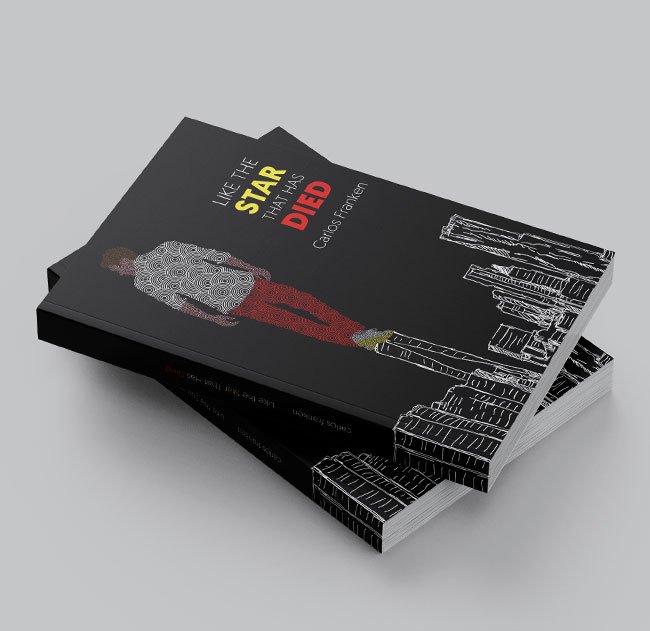Review of the book Like the Star That Has Died (Carlos Franken).
It’s never easy to say goodbye; that’s the scoop that opens this novel. And yes, of course it isn’t, people put down roots in places, we get attached to material things, and of course we fall in love. Sometimes we call «love» something that simply is not love, it would be more accurate to recognize it as an unhealthy emotional attachment or even as codependency. When we put our emotional security in someone else, we sign a contract for an unhappy relationship.
Leonardo is in danger of getting lost in the dark slopes he is walking through because of his way of «loving»; it is difficult for him to realize that he is walking through them; a look in the mirror, or perhaps the reflection of someone else in the same situation, could tell him where he is.
What if he never finds out? What if he wants to cling to a sinking love, would he go down with it? At what point might his way of loving lead him to moral and personal ruin? These are the questions that form the backbone of «Like the Star That Has Died,» a novel that jumps through time and space, recounting Leonardo’s life, detailing the complexity of his interpersonal relationships, how he behaves in the different roles he occupies, as partner, friend, son, brother…

Buy on Amazon
The first chapter focuses on a not too distant future of the chronological beginning of the story, which reveals the obsession that still lingers in Leonardo’s mind. His friend Zarina is having a bad time with her fiancé, and the details she shares with him make him remember the dead illusions that are still in his being, for a love that did not reach eternity. All this makes him think of Daniel, his before and after.
What could be considered the chronological beginning of the story is told in the second chapter. Leonardo goes to an unconventional therapy with the intention of finding answers, this after ending a long relationship with his first love of adolescence, Paula. The therapist, Patricia, has the gift of talking to the «masters,» who say to Leonardo things that surprise him. Leonardo has a secret that eats him up inside, his love can no longer be pigeonholed into gender.
It seems that Leonardo is a narcissist, and as such it is difficult for him to recognize that. It is true that he is an ordinary man, but with an extraordinary brilliance; he can melt with the darkness of a cold night, but he can also shine with the brightest sun. His being is composed of a wide range of colors, all tinted with his passions, his desires, and his sorrows.
He believes in love and is not afraid to bet everything because he is convinced that he will win, because there is no room in his head for a question like this: «What if love is not enough?» He trusts that as long as he loves, an embracing power will be on his side.

Buy on Barnes & Noble
Like the Star That Has Died by Carlos Franken
The novel has a psychological undertone that makes us question what we give, what we demand, what we are willing to share and «put up with» when we are in a relationship. The story delves (briefly in some cases and more complexly in others) into themes such as mother-son relationships, friendship, brotherhood, love, trust, self-esteem, regret, and loneliness. Stories within stories are told with the central theme of emotional attachment that becomes obsession.
A series of fantasies, illusions and high expectations tell of a love that may or may not last forever. Temporality has no influence on this love, it is the collection of full experiences that will open Leonardo’s heart.
«Like the Star That Has Died» tells of the sunny days as well as the storms. The book tells of overflowing passions and the perverse desires. The novel tells the story of pure and sincere love, but also of that dishonest love, tainted by disappointment and burdened by boredom… of an emotional bond already poisoned by betrayal and guilt.

